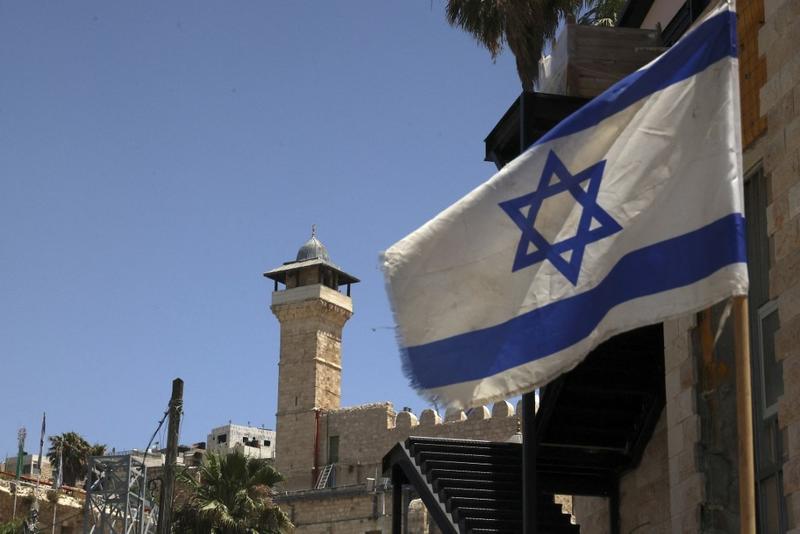 An Israeli flag flies in a street in front of the Ibrahimi Mosque or the Tomb of the patriarchs, in the West Bank town of Hebron, on May 26, 2022. (HAZEM BADER / AFP)
An Israeli flag flies in a street in front of the Ibrahimi Mosque or the Tomb of the patriarchs, in the West Bank town of Hebron, on May 26, 2022. (HAZEM BADER / AFP)
GENEVA - A Palestinian human rights group told a UN panel on Monday it had been subject to threats and "mafia methods" during a campaign of harassment organized by Israel to silence groups documenting alleged Israeli rights violations.
Israel dismissed the process overseen by the panel as a sham while it declined comment on the specific allegations.
The independent Commission of Inquiry, established by the Human Rights Council, the UN top human rights body, last year, plans five days of hearings which it says will be impartial and examine the allegations of both Israelis and Palestinians.
READ MORE: Israeli PM endorses two-state solution with Palestinians
In the opening session, the commission heard from representatives of Palestinian organizations shuttered by Israel in August and designated as "terrorist" entities.
Shawan Jabarin, General Director of human rights group Al-Haq, denied the terrorism charge and called the closure an "arbitrary decision", saying Israeli security forces had used "mafia methods" against it in a years-long harassment campaign.
Shawan Jabarin, General Director of human rights group Al-Haq, denied the terrorism charge and called the closure an "arbitrary decision", saying Israeli security forces had used "mafia methods" against it in a years-long harassment campaign
"They used all means, I can say. They used financial means; they used a smear campaign; they used threats," he said, saying his office was sealed with a metal door on Aug 18.
Asked to detail the threats mentioned to the panel, Jabarin told Reuters after the hearing that he had received a phone call from somebody he identified as being from "Shabak", or the Israel Security Agency, two days after the raid. They threatened him with detention, interrogation or "other means" if he continued his work, he added.
ALSO READ: Abbas urges US to compel Israel to stop violations
A spokesperson for Israel's diplomatic mission in Geneva declined to comment on the specific testimony. A spokesperson for Israel's foreign ministry declined to comment.
"This (COI) and the convening of these sham trials shame and undermine the Human Rights Council," it said in an earlier statement, saying the commission had an "anti-Israel" agenda.
A UN human rights office has previously dismissed allegations of bias and said Israel had not cooperated with the commission's work.
The first set of hearings will next turn to the killing of the Palestinian-American reporter Shireen Abu Akleh in May.
The UN rights office has said its findings suggest that she was killed by Israeli forces while an Israeli investigation concluded she was likely unintentionally shot by an Israeli soldier.
Neither the hearings nor the UN Human Rights Council have any legal powers. But investigations launched by the council are sometimes used as evidence before national or international courts.
READ MORE: Palestine: Israel force deliberately shot Al Jazeera reporter
Israel's ally the United States has criticized the UN Human Rights Council for what it has described as a "chronic bias" against Israel. It quit the body over this in 2018 and only fully rejoined this year.
The three-member COI was created after the 11-day conflict in May, 2021, during which 250 Gaza Palestinians and 13 people in Israel died. The inquiry mandate includes alleged human rights abuses before and after that and seeks to investigate the root causes of the tensions.


